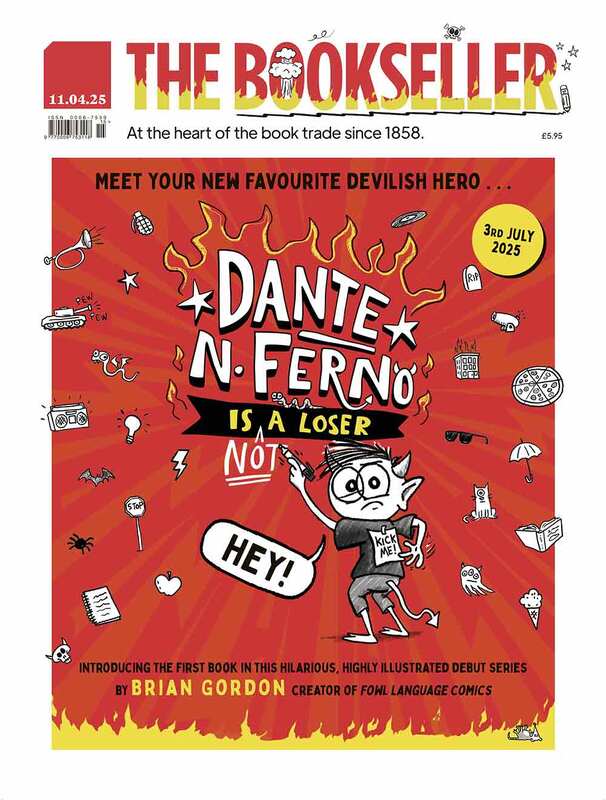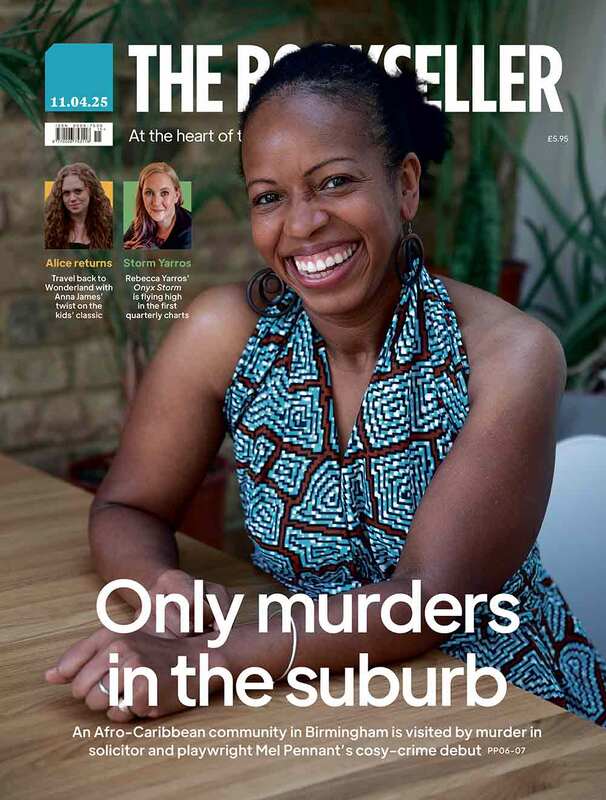Peter James: Crime made dead simple
Peter James is feeling a touch tender. Wine was in full flow the previous evening at a dinner with W H Smith's buying team, and early this morning he spent two hours with a forensics expert, studying the differences between male and female human remains. Tomorrow he's off to New York for a whirlwind tour of NYPD headquarters, before jetting back to glad-hand booksellers at the Booksellers Association conference in Harrogate.
This packed diary of hands-on research and trade events suits James down to the ground. He's hit his stride with the crime series starring Detective Superintendent Roy Grace‚the opening book, Dead Simple, shifted 136,000 copies in paperback through BookScan, was translated into 28 languages, and picked up France's Prix Coeur Noir. Its follow-up, Looking Good Dead, reached 150,000 copies, and hopes are even higher for Not Dead Enough (Pan Macmillan, June).
James has joined the top ranks of British crime authors with global appeal. "Everyone seems to have got behind me," he marvels. "I've found what I really love."
It was not always thus. His career snaked between spy novels, horror, and technological/supernatural thrillers, with spells of success marred by pigeonholing and some poor publishing decisions. His breakthrough was Possession (1987), when he was billed as the "British Stephen King". "That turned out to be a real albatross," he rues. "Horror was on the ascendancy, but within five years it was a ghetto genre, relegated to the back of stores."
After intermittent hits, notably sf chiller Host, he moved to Penguin on the ill-fated Signet list. Then he jumped to Orion, where he turned out more conventional thrillers: "I tried to get them to reposition me, but it didn't really happen‚something didn't click."
In 2001 he made a big decision: ditch his literary agent Jon Thurley in favour of Carole Blake, a lifelong fan of his work. She convinced him to buy out his Orion contract, and sat him down with Pan Macmillan duo David North and Geoff Duffield, who suggested a detective series. "They felt it was the rising genre. I jumped at the chance‚it was what I'd always wanted to write."
James had already built a network of police contacts around Brighton‚he spends at least a day every few weeks out on the beat, at the station or in the mortuary. He'd befriended a detective who rose to chief superintendent and became the model for Grace.
James added some twists to make Grace a "bit of an oddball": a missing wife and a belief in the supernatural. "I thought it would be fascinating to create a detective who had a puzzle of his own that he couldn't solve," he says. "I get emails from readers every day saying: 'Are you going to tell us what's happened to her?'"
James' fast-paced style chimed with British readers' growing appetite for US crime fiction. "For British writers the puzzle is everything; for Americans it is more about whether they going to get to the killer before he kills." Borrowing from film scripts, he intercuts narratorial perspectives in punchy chapters.
From the start, James was determined to set the series on his home turf: "Brighton has the largest number of 'first division' criminals‚drug overlords, fraudsters‚of any city in the UK. I have this theory that most interesting, edgy cities have a criminal undertow." He's bidding to stamp his mark on the city in the same way Ian Rankin has defined Edinburgh, and Macmillan's marketing imagery hammers it home.
In an echo of the likes of Kathy Reichs and Patricia Cornwell, James doesn't flinch from grisly descriptions. "The post mortem is the crucible of modern crime fighting," he says, insisting that readers are not being macabre. "Everything [humans] do is directly related to surviving. Part of our fascination with gruesome murders is sharpening our own antennae of how we can avoid [the same fate]."
James' manor house, perched on the South Downs near Lewes, is filled with film posters‚a reminder of his parallel career as a producer. His credits span low-budget horror movies ("Blood Orgy of the She Devils") to the 2004 Bafta-nominated "Merchant of Venice", starring Al Pacino and Jeremy Irons.
He's all but abandoned film now. "Books are what I love: as an author, every word I write stays on the page. Film is a committee process, and I've done my bit of wet-nursing spoilt -little movie stars." He'll only get back behind the camera in order to bring Grace to the screen‚discussions are ongoing with ITV and also film director Roman Polanski. The plan is for Grace to follow Morse and Rebus‚a home-grown sleuth who becomes a household name.








